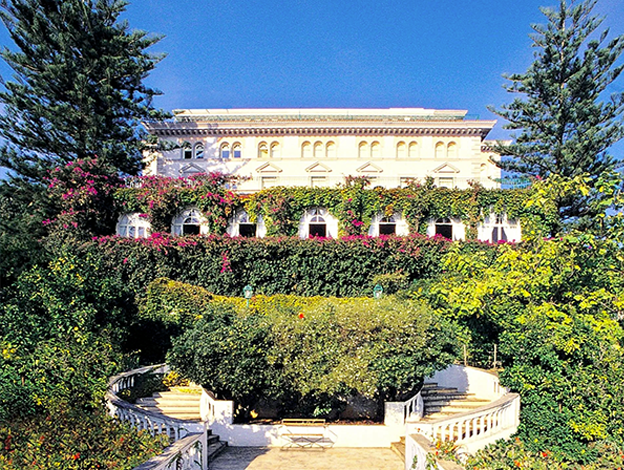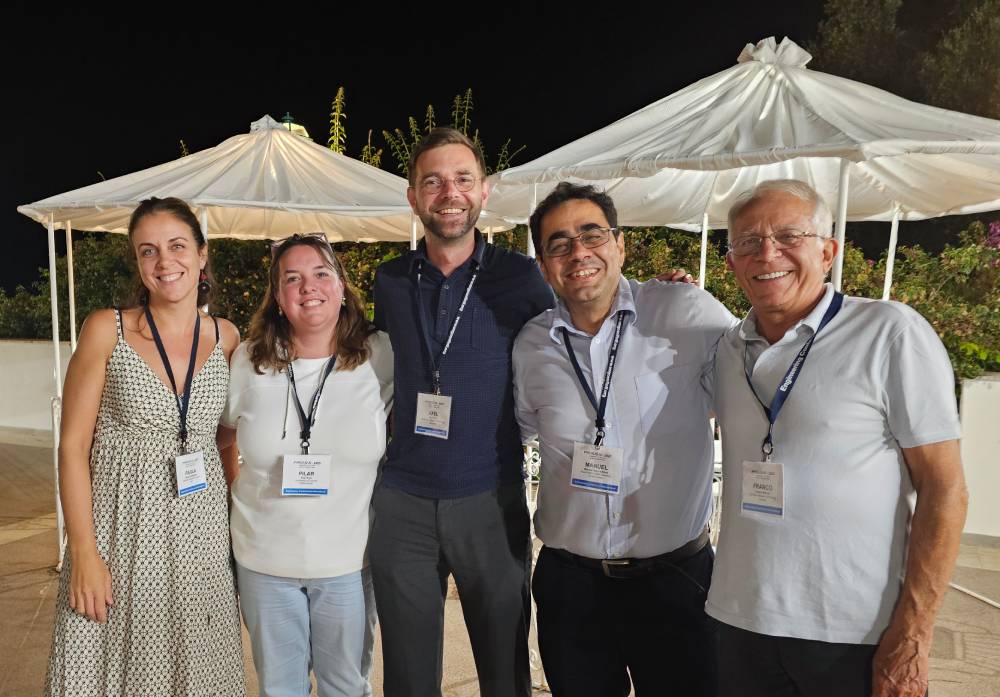An ECI Conference Series

September 14-19, 2025
Grand Hotel San Michele
Cetraro (Calabria), Italy
About This Conference
Following the successful Pyroliq I and II conferences held in Cork, Ireland and Schloss Hernstein, Austria in 2019 and 2023 respectively, the Pyroliq III conference will be a forum for discussion of the recent advances in liquefaction technologies of biomass, organic residues and wastes to intermediate products like bio-oil, biochar, syngas and torrefied materials. This will include slow, intermediate and fast pyrolysis, hydropyrolysis, solvent liquefaction and hydrothermal processing. A special session will be dedicated to pyrolysis-liquefaction of wastes from fossil origin, such as plastics. The refining and/or upgrading of resulting product intermediates using standalone facilities or co-processed taking advantage of existing infrastructure will be also an important topic for this conference.
Final products are derived after proper fractionation, isolation, purification and/or upgrading, and contributions addressing the processing to marketable materials, chemicals and fuels are especially invited. This discussion will include techno-economic analyses and life cycle assessments.
The conference will also offer a platform to those who are able to report on commercially successful processes.
After the success of the first and second Pyroliq conferences, we feel that this 3rd edition is timely, and that it will be an important event to foster friendly and deep face-to-face discussions that could further catalyze the growth of this industry.
Main Themes and Proposed Sessions
- Fundamentals of pyrolysis and liquefaction technologies, including lignin or cellulose depolymerization (reaction mechanisms in dry and solvent environments, reaction kinetics, product selectivity, effects of heat and mass transfer limitations, catalysis)
- Reactor development and modelling (testing and modelling of lab-scale units)
- Process development and integration (testing of fully continuous laboratory setups and pilot installations providing a full mass balance closure, including pre-treatment, reaction and product separation)
- Resources and feedstock characterization and pretreatment
- Product characterization, separation and upgrading (refers to chemical characterization, isolation, purification and post treatment / upgrading of fractions or single compounds from the first products of pyrolysis or liquefaction; this would also include catalytic hydro-processing of bio-oils)
- Development of added-value products and market studies (heat, electricity, fuels, chemicals and materials notably from lignin)
- Technical, economic and environmental feasibility studies
- Novelties (integration of electrochemistry, membranes, hydrogen, fuel cells, ionic liquids, molten salts, etc.)
- Pyrolysis or liquefaction of waste from fossil origin (e.g. plastics)
- Successful demonstration, scale-up and commercialization
Conference Scientific Committee
Luis Ernesto Arteaga-Perez, University of Bio-Bio, Chile
Franco Berruti, ICFAR, Western University, Canada
Patrick Biller, Aarhus University, Denmark
Marion Carrier, CNRS, Albi, France
Farid Chejne, National University of Colombia, Colombia
Peter Ciesielski, NREL, USA
Nicolaus Dahmen, Karlsruhe Institute of Technology, Germany
Benedetta De Caprariis, University La Sapienza, Italy
Anthony Dufour, CNRS, ENSIC, France
Isabel Fonts, Universidad de Zaragoza, Spain
Erik Heeres, University of Groningen, Netherlands
George Huber, University of Wisconsin-Madison, USA
Sascha Kersten, University of Twente, The Netherlands
Angelos Lappas, CPERI/CERTH, Greece
Dorothée Laurenti, CNRS, Lyon, France
Gartzen Lopez, University of Basque Country, Spain
Qiang Lu, North China Electric Power University, Chin
Will Meredith, University of Nottingham, UK
Charles Mullen, USDA, USA
Anja Oasmaa, VTT, Finland
Mariefel Olarte, PNNL, USA
Christoph Pfeifer, University of Natural Resources and Life Sciences, Vienna, Austria
Wolter Prins, Gent University, Belgium
Andrea Maria Rizzo, Re-Cord, Italy
Frederik Ronsse, University of Gent, Belgium
Christopher Saffron, Michigan State University, USA
Cristian Torri, Universita’ di Bologna, Italy
Shurong Wang, Zhejiang University, China
Alberto Wisniewski, Universidade Federal de Sergipe, Brazil
Hsi-Wu Wong, University of Massachusetts Lowell, USA
Hongwei Wu, Curtin University, Australia
Conference Organization

(left to right): Paola Giudicianni. Pilar Ruiz Ramiro, Alex Funke, Manuel Garcia-Perez and ECI Technical Liaison Franco Berruti
Conference Co-Chairs
Axel Funke, KIT, Germany
Pilar Ruiz Ramiro, University of Twente, Netherland
Paola Giudicianni, Institute of Science and Technology for Sustainable Energy and Mobility - CNR - Italy
Manuel Garcia-Perez, Washington State University, US
Publications
With permission of the authors, the PowerPoint presentations delivered at the Conference will be included in the ECI Digital Archives.
The participants will be invited to submit a full paper on a special issue that is being organized with Energy & Fuels.
General Information About ECI
Engineering Conferences International (ECI) is a not-for-profit, global engineering conferences program, originally established in 1962 that provides opportunities for the exploration of problems and issues of concern to engineers and scientists from many disciplines.
The format of the conference provides morning and late afternoon or evening sessions in which major presentations are made. Poster sessions will be scheduled for evening discussion as well. Available time is included during the afternoons for ad hoc meetings, informal discussions, and/or recreation. This format is designed to enhance rapport among participants and promote dialogue on the development of the meeting. We believe the conferences have been instrumental in generating ideas and disseminating information to a greater extent than is possible through more conventional forums.
All participants are expected both to attend the entire conference and to contribute actively to the discussions. The recording/photographing of lectures and presentations is forbidden. As ECI conferences take place in an informal atmosphere, casual clothing is the usual attire.
Smoking is prohibited at ECI conferences and conference functions.

